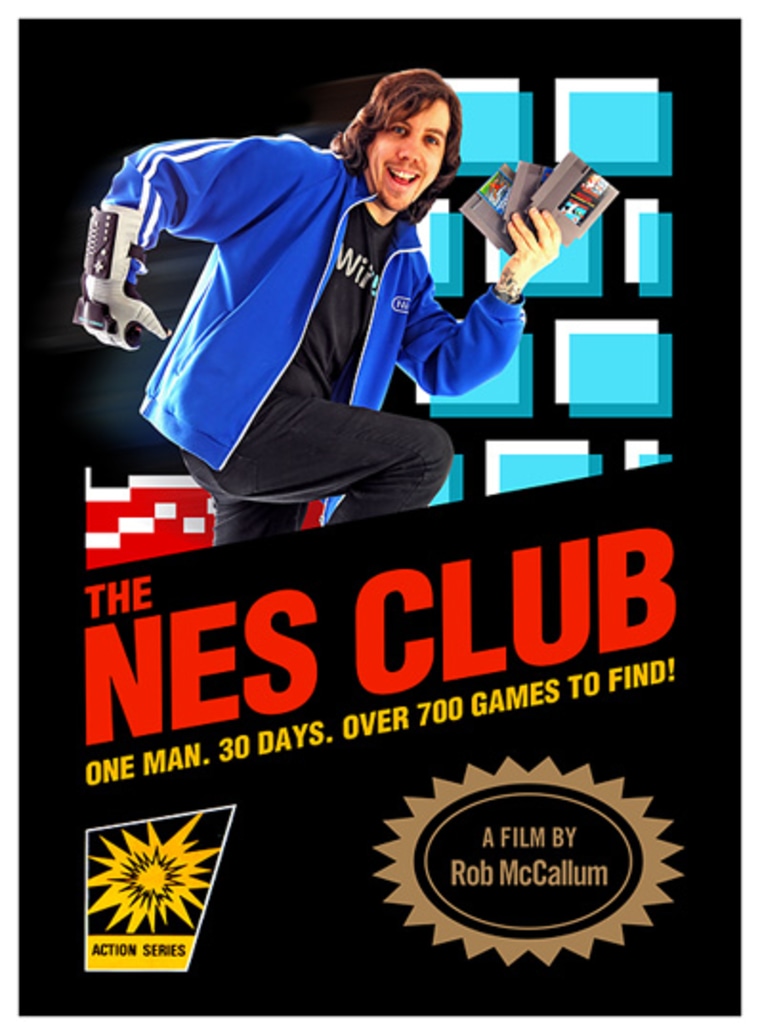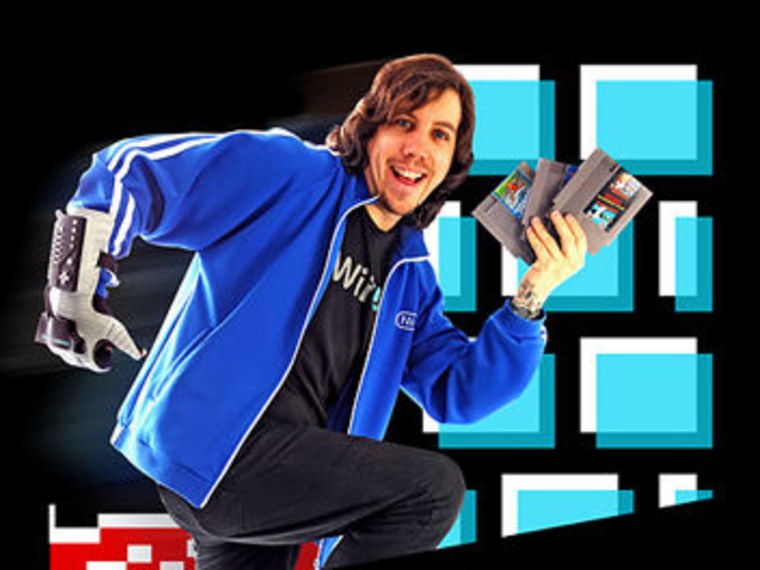
The Nintendo Entertainment System (NES) turned 30 Monday, an anniversary of one of the most iconic and beloved video game consoles ever. One group of NES enthusiasts is embarking on a 30-day challenge to find all 700 NES games ever published, and document that hunt on film.
The movie is "The NES Club," a documentary written and directed by filmmaker Rob McCallum who successfully completed a Kickstarter campaign recently, raising more than $16,000 to make the film.
The premise of "The NES Club" sounds sort of like a combination of "The Great Race" and a tchotchke-themed reality TV show like "Pawn Stars" — movie protagonist and NES-diehard Jay Bartlett will embark on an international tour of major cities such as London and Toronto in search of the classic and arcane in the NES game library. In addition to the 30-day deadline, there are only a few main rules: Bartlett cannot purchase any of the games online, he has to use his own money to buy every game, and he must at least find every NES game that was officially recognized by Nintendo.
Like any project dedicated to a vintage video game system (McCallum cites the Web series "Game Chasers," which had a duo of gamers search around Texas for "classic games," as a major influence), "The NES Club" obviously carries with it a healthy dose of nostalgia. But McCallum told NBC News that part of his aim is to try to see what else beyond simple nostalgia still makes gamers so fond of the NES.
"I want to ask: what makes Mario so damn endearing?" McCallum said. "Is it just nostalgia, or is there something inherent in the mechanics of the game?"
McCallum referenced influential media theorist Marshall McLuhan to suggest that "the game we play reflect a lot about our society," adding that part of the reason that Nintendo secured such a powerful legacy with the NES was because the company took such a revolutionary and communal approach to screen-based gaming .
"The NES may have killed the classic arcade," McCallum said. "But it introduced the game console to the living room. The family became the new unit for how people played video games."
Today, McCallum said, that kind of gaming has become underappreciated once again thanks to the proliferation of distracting mobile devices and disembodied multiplayer games that are only played online.
"So there is an element of nostalgia to how we played the NES," McCallum said. "But people still want to connect with people! They miss the days where you're sharing a controller with another friend to get through 'Super Mario.' That shared experience, where we all huddled around one screen, rather than everybody focusing on their own screen, no longer exists."
McCallum said that while companies like Sony and Nintendo have begun to put more and more of their older video games up on newer hardware through programs like the Wii U's "virtual console," it was important for him to try to find physical copies of the NES games for their historical and artistic value.
"In a digital world, everything is erasable," he said. "So how long is everything going to last?"
With just 30 days, finding all 700 NES games might seem like a long shot. But the team apparently has one particularly elusive title in its sights: the 1987 Bandai game "Family Fun Fitness: Stadium Events." With just 2,500 units produced in the game's short history before it was acquired and rebranded by Nintendo, McCallum said that he's seen copies sell on eBay for as much as $75,000.
"It's a little pricey," he laughed.
Yannick LeJacq is a contributing writer for NBC News who has also covered technology and games for Kill Screen, The Wall Street Journal and The Atlantic. You can follow him on Twitter at @YannickLeJacq and reach him by email at: Yannick.LeJacq@nbcuni.com.
